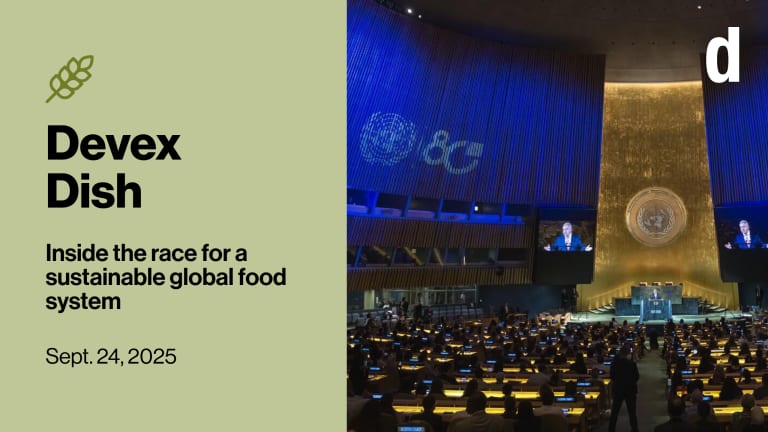The Food and Agriculture Organization is the latest United Nations agency to face pressure from the Trump administration to reform into a conservative mold and immediately halt initiatives that do not align with an “America First” foreign policy.
At a meeting of FAO’s council in Rome this week, the United States laid out its vision for an FAO that brings the agency “back to its core mandate.” To do this, FAO must first “use clear and accurate language in its work and programming that recognizes that women are biologically female, and men are biologically male,” according to Rodney Hunter, interim chargé d'affaires at the U.S. Mission to U.N. agencies in Rome.
Further, Hunter said, FAO must ensure that its work does not include any diversity, equity, and inclusion policies — which, in the Trump administration’s view, “diminish the importance of individual merit, aptitude, hard work, and determination when selecting people for jobs and services.”








